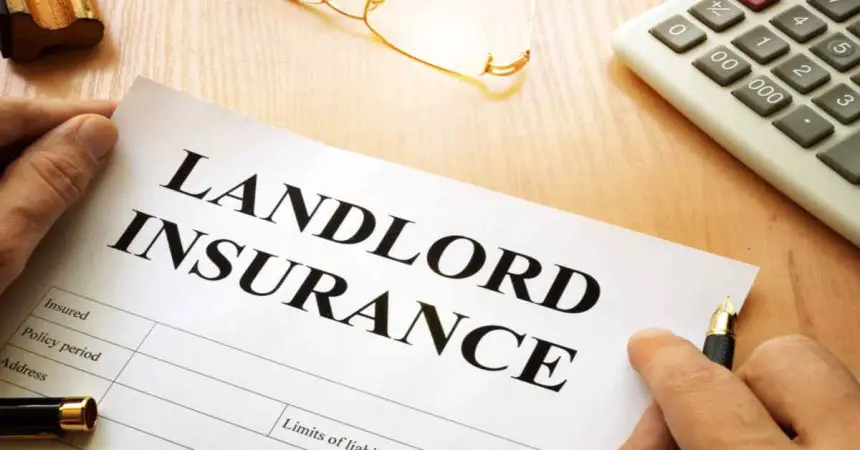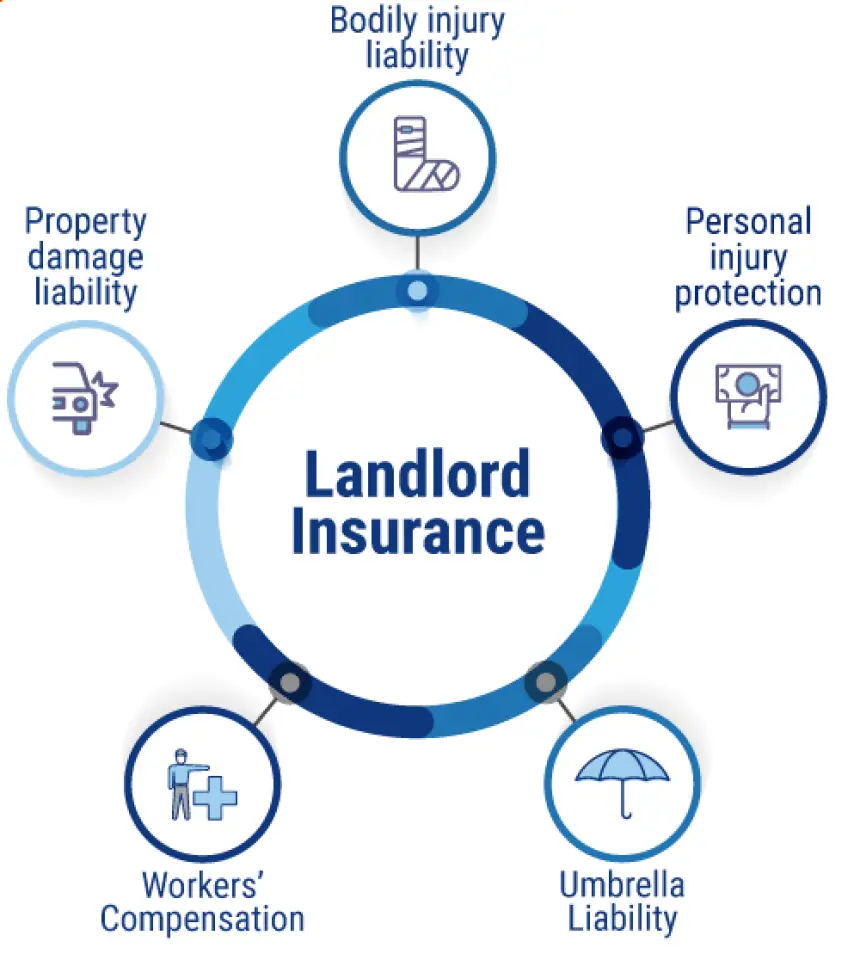
Landlord Insurance: Protecting Your Investment Property
Do you want to protect your rental property as a landlord? To make an informed choice, learn everything there is to know about landlord insurance, including its significance, available coverage, and frequently asked questions. Discover in-depth knowledge and professional perspectives here.
Introduction
There are benefits to being a landlord, but there are also risks involved. Getting the appropriate insurance coverage is an important part of managing rental properties. In order to safeguard your investment property and provide you piece of mind, landlord insurance is essential. In this thorough tutorial, we will delve into the realm of landlord insurance, examine its advantages, cover possibilities, and respond to frequently asked questions to assist you in making selections.
What is Landlord Insurance?
A specific kind of property insurance called landlord insurance is made to protect landlords from monetary losses associated with their rental properties. Landlord insurance offers coverage that is specialized to the needs of property owners who rent out their homes, condos, or apartments to tenants, unlike typical homeowner's insurance, which may not cover rental properties.
You may also like : "Renters Insurance: Protecting Your Home and Peace of Mind"
The Importance of Landlord Insurance

Although owning and running rental homes can be financially lucrative, there are also inherent hazards involved. Here are some reasons why having landlord insurance is so crucial:
- Property Protection:Landlord insurance provides protection against physical losses to the property brought on by calamities like fire, vandalism, or extreme weather. It guarantees that your money is protected.
- Liability Coverage:Accidents sometimes happen, and you might be held responsible if your renters or their visitors get hurt. Landlord insurance offers liability protection to shield you from conceivable legal actions and medical costs.
- Loss of Income:The loss of rental income while the rental property is being repaired can be compensated by landlord insurance if your rental property becomes uninhabitable as a result of a covered occurrence.
- Legal Expenses:Landlord insurance may help defray the costs associated with pursuing legal action against a tenant in the event that such action is necessary.
- Tenant Default Coverage:Some landlord insurance plans provide coverage in the event that a tenant defaults on rent or abruptly vacates the premises before the lease expires.
Different Types of Landlord Insurance Coverage
It's critical to comprehend the numerous coverage alternatives available to meet your unique demands when thinking about landlord insurance. The following are the main coverage options:
- Dwelling Coverage:This is the most important aspect of having landlord insurance because it safeguards the physical structure of your property, which includes the walls, floors, roof, and any appliances that are built-in.
- Liability Coverage:As was indicated previously, having liability coverage protects you from the financial losses that can arise from lawsuits filed by injured renters or guests of those tenants.
- Personal Property Coverage:Although landlord insurance focuses mostly on protecting the structure of the rental property, it may also cover some personal possessions, such as lawnmowers and tools, that are left on the property for tenants to use.
- Loss of Rental Income:This coverage will offer you with financial support in the event that your property becomes uninhabitable as a result of a risk that is covered under the policy. This will aid you in maintaining your financial stability throughout the restoration process.
- Additional Living Expenses (ALE):In the event that your rental property becomes inhabitable, the additional living expenses (ALE) coverage on your insurance policy will pay for your temporary living expenditures, such as hotel stays or rental accommodations, until the rental property is once again ready to be occupied.
You may also like : "The Essential Guide to Travel Insurance: Protecting Your Adventures Around the Globe"
How Much Landlord Insurance Do You Need?
There are a number of considerations that go into determining the correct amount of landlord insurance, including the following:
- Property Value: Take into account the cost to replace your property, taking into account any upgrades or additions you may have made.
- Liability Risk:Determine the probable liability risks that are linked with your property, then select coverage limits in accordance with those findings.
- Location:Because of their greater likelihood of being affected by specific hazards, the insurance limits on properties located in high-risk zones may need to be adjusted.
- Number of Units:If you own numerous rental units, you should think about the total amount of coverage required for all of the properties combined.
It is in your best interest to engage closely with an insurance agent who is skilled in landlord insurance so that you may determine the coverage that is most appropriate for your specific situation.
Conclusion
As a landlord, one of your main priorities should be to take care of the investment property you own. Insurance for landlords provides the required coverage to protect your financial interests and shield you from the impact of unforeseen catastrophes. Landlord insurance gives you the peace of mind you need to face obstacles head on, whether those issues involve the danger of losing rental income, damaging your property, or being sued. Always make sure to investigate the various coverage choices available, carefully consider your individual requirements, and consult with insurance experts before deciding on a plan. Protect your investment and take pleasure in the advantages that come with being a successful and accountable landlord.
Frequently Asked Questions (FAQs)
Is landlord insurance legally required?
- While landlord insurance is not a legal requirement, it is highly recommended. Many mortgage lenders may also insist on it before approving a loan.
Can I use regular homeowner's insurance for my rental property?
- No, homeowner's insurance may not provide adequate coverage for rental properties, as it is specifically designed for owner-occupied homes.
Does landlord insurance cover tenant property?
- No, landlord insurance does not cover the personal belongings of tenants. They will need to purchase their renter's insurance for this purpose.
Are there any exclusions in landlord insurance policies?
- Yes, typical exclusions may include intentional property damage by the landlord, normal wear and tear, and certain natural disasters. It's crucial to understand the policy exclusions before purchasing.
How can I reduce the cost of landlord insurance?
- Installing safety features, such as smoke detectors and security systems, maintaining a good rental history, and bundling insurance policies can help lower insurance costs.
Can I adjust my coverage during the policy term?
- Depending on the insurer, you may be able to adjust your coverage or add endorsements to meet changing needs during the policy period.
You may also like : "Tricare Insurance: Comprehensive Coverage for Military Personnel"
Tags
#LandlordInsurance, #RentalPropertyInsurance, #PropertyInvestment, #LandlordProtection, #InsuranceCoverage, #LiabilityProtection, #LossOfIncome, #TenantDefaultCoverage, #DwellingCoverage, #PersonalPropertyCoverage, #LossOfRentalIncome, #AdditionalLivingExpenses, #LandlordInsuranceCoverage, #ChoosingLandlordInsurance, #FAQsAboutLandlordInsurance, #LandlordInsuranceBenefits, #PropertyInsurance, #RentalPropertyProtection, #LandlordLiability, #InvestmentPropertyInsurance, #PropertyManagement, #RentalPropertyTips, #LandlordAdvice, #InsuranceTips, #PropertyInvesting, #RentalPropertyManagement, #LandlordFAQs, #PropertyInsuranceGuide





